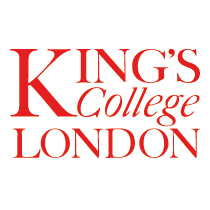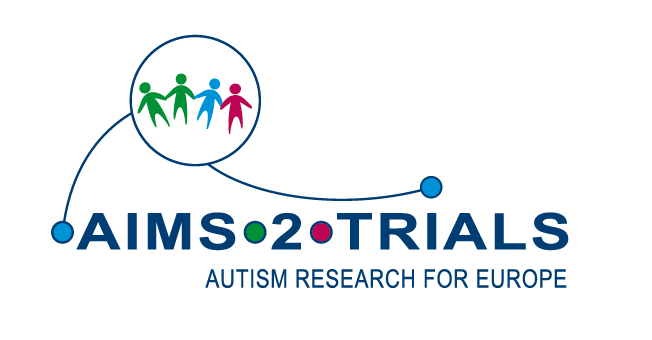Ethics

Ethical considerations are embedded into each study from the very beginning
All of the individual research studies will go through local or national Ethics Committees and Regulatory Authorities. All studies are required to follow with international, national and European Union laws. They will also comply with ethical principles, including research integrity, and with the EU General Data Protection Regulation (GDPR).
Studies that involve people will place particular emphasis on: appropriate study design; expertise of the investigators performing the study; the rigour of the local approval process; the validity of informed consent; minimizing risks to participants; possible benefits to autistic individuals; data protection and privacy. All research studies are led by investigators who have an established track record of excellent scientific work. The Autism Representatives, or A-Reps, will be able to provide input and feedback on the research, including ethical considerations. Read more.
For added oversight, the ethical issues of all studies are coordinated across the whole programme, following guidelines for ethics management as set by our funder the Innovative Medicines Initiative. The coordination of ethics across the programme is led by King’s College London, Birkbeck College, University of London and ARTTIC. The ethics coordinators will be responsible to storing and collating information about ethics and any regulatory approvals from every site and country involved in each research project and will coordinate the production of the annual ethics report.
Ethics coordinator: Emily Jones (Birkbeck College, University of London, England)
Objectives
1. Ensure that all research activities and projects will obtain ethical approval
2. Record and report on ethics and its management to the AIMS-2-TRIALS key funder anually
3. Ethics boards will provide independent oversight on scientific and ethical issues
Consortium Principles
AIMS-2-TRIALS researchers collaborated with autism representatives (A-Reps) to develop core ethical principals for the consortium.
Respect, trust-building and community inclusion
We are committed to respecting and building trust with our community partners, through inclusion and engagement.
Changing research culture and language
We are committed to changing aspects of current research culture and language which reinforce stigmatising and unhelpful narratives about autism
Minimising direct and indirect risk
We are committed to actively considering and minimising risk for all individuals whose lives are affected either directly or indirectly by all aspects of our research activity, from study design to dissemination.
Protecting data rights whilst preserving data
We are committed to safeguarding the data rights and autonomy of our participants, while exploring ways to sustainably share data with external researchers.
Advisory Board
External Ethics Advisory Board
The project will comply with ethical principles (including research integrity) and appropriate international, EU and national laws. All studies and trials taking place as part of the AIMS-2-TRIALS research programme need to comply with and receive a favourable review by their local and national ethics commissions and comply with all regulatory requirements.
The consortium has also appointed an Independent Ethics Board (IEB) to provide advice and support on ethical issues across the research programme, and provide oversight of the recording of local, national and European ethical and regulatory applications for the studies of AIMS-2-TRIALS.
Members of the Autism Representatives (A-Reps) will be consulted on the ethical process, to ensure their perspectives are heard. This will take place via group meetings with researchers and through communication with the ethics coordinator. The IEB will also communicate with A-reps where their input would be advantageous.
Key tasks:
- Monitor ethical documentation and responses for the constituent studies of the research programme.
- Provide advice and insight on ethical matters to the consortium, including the ethical implications of novel results as they emerge.
- Engage key experts to provide expert advice where necessary (e.g. new EU legislation as it arises).
- Contribute to an annual ethics report, led by the ethics coordinator.
Members:

Marcella Rietschel
University of Heidelberg, Germany
Professor Marcella Rietschel is a psychiatrist, psychotherapist, and medical geneticist. Since 2002, she has been Director of the Department of Genetic Epidemiology in Psychiatry and the Molecular Genetic Laboratory at the Central Institute of Mental Health in Mannheim (University of Heidelberg) Germany. Marcella Rietschel’s research focuses on identification of genetic and environmental risk factors for psychiatric conditions and pharmacogenetics and has published more than 600 original papers in these two fields. She is a member of the German National Academy of Sciences (Leopoldina); the Heidelberg Academy of Science; and the International Society of Psychiatric Genetics (ISPG); served on the ISPG Board of Directors from 2010-2016; was ISPG Vice President from 2012-2016; and she received the ISPG Ming Tsuang Lifetime Achievement Award in 2017. Marcella Rietschel is very interested in the ethical, legal, and social implications of psychiatric genetic research and conducted a number of projects to investigate the attitudes of diverse societal groups towards genetic research and testing, in particular their expectations and fears. These studies have involved more than 5000 subjects from the general population, as well psychiatric patients, relatives, care-givers, and other relevant groups. She collaborates with representatives from diverse disciplines, e.g. lawyers, ethicists, theologians, philosophers, and patient representatives, and provides advice on ethical issues to national and EU-funded projects in the capacity of both investigator and scientific advisor. In addition to these activities, Marcella Rietschel is: 1) engaged in an ongoing dialogue with the European Network of Research Ethic Committees in order to harmonise informed consent documentation for participants in psychiatric genetic studies across Europe; 2) the German representative of the European Action “Enhancing Psychiatric Genetic Counselling, Testing, and Training in Europe” (EnGagE); and 3) an active member of the ISPG Task Force on Genetic Testing and the ISPG Ethics Committee.

John Suckling
University of Cambridge, United Kingdom
Professor John Suckling is a physicist with over 25 years’ experience in medical imaging and more than 250 peer-reviewed articles covering diverse applications in oncology, mammography, psychiatry (depression, autism, schizophrenia, bipolar disorder and addiction), learning difficulties, head injury, and cognition. He is Director of Imaging Sciences at the Evelyn Perinatal Imaging Centre, a Fellow of the Alan Turing Institute, and Visiting Professor at Nanyang Technological University, Singapore and Qingdao University, PRC. He is the Chair of the University of Cambridge Psychological Research Ethics Committee (REC) and sits on the University’s central REC.

Ulrike Schulze
Centre for Psychiatry Baden-Würtemberg, Germany
Dr. Ulrike Schulze is a research group leader at the University of Ulm, Department of Child and Adolescent Psychiatry/Psychotherapy and Chief Physician at Zentrum für Psychiatry Calw, Department of Child and Adolescent Psychiatry and Psychotherapy, Böblingen. Ulrike Schulze’s research is on eating disorders, aggression, ethical aspects and transition in psychiatry. To date, she is actively involved in a few European research projects where she is responsible for ethics projects and is also active as an advisor. Her interest and experience in ethical issues can be seen in the context of clinical work as well as the conduct of studies. She was for example involved in publications and a book contribution on ethical aspects in child and adolescent psychiatry. Ulrike Schulze is member of the DGKJP (German society of Child and Adolescent Psychiatry and Psychotherapy), DGESS (German Society of Eating Disorders) and ECNP (European College of Neuropsychopharmacology).
Scientific Advisory Board
This is an independent board that will advise on the standard of the research in AIMS-2-TRIALS. It will also monitor progress of the project by taking part in annual meetings. The board will make recommendations to improve research performance when and where needed. It consists of four members who are world leading experts in their respective research fields. These fields represent three key parts of the project:
Members with research expertise in:
Autism

Professor Geraldine Dawson
Director of the Duke Center for Autism and Brain Development and Professor in the Departments of Psychiatry and Behavioral Sciences, Pediatrics, and Psychology and Neuroscience at Duke University. Dawson is Professor, Departments of Psychiatry, Pediatrics, and Psychology and Neuroscience and Director, Duke Center for Autism and Brain Development at Duke University. Dawson directs the Duke NIH Autism Center of Excellence focused on early detection, neural bases, and treatment of autism and ADHD. She is Past-President of the International Society for Autism Research and serves on the Interagency Autism Coordinating Committee which develops the federal strategic plan for autism research, services, and policy. Dawson is a licensed clinical psychologist and scientist, having published >290 articles and 10 books on early detection and treatment of autism. Her research was recognized by the NIH as a Top Advance in Autism Research in 2007, 2008, 2009, 2010, 2012, 2013, 2014, 2015, 2016, and 2017 and by TIME magazine as one of the top 10 medical breakthroughs of 2012. Dawson’s awards include the Lifetime Achievement Award from the Association for Psychological Science.
Professor Edwin Cook
Director of Center for Neurodevelopmental Disorders and the Director of Division of Child and Adolescent Psychiatry, University of Illinois
Neonatal and Infant development

Professor William Fifer
Professor of Clinical Developmental Psychobiology in Psychiatry and Pediatrics, Associate Director, Sackler Institute for Developmental Psychobiology, Columbia University. Fifer is a professor in the Departments of Psychiatry, Pediatrics and Psychology at Columbia University. He is Chief of the Developmental Neuroscience Division and Co-Director of the Columbia Sackler Institute of Developmental Psychobiology at the New York State Psychiatric Institute and directs research program focuses on the effects of the early environment on fetal and infant brain/behavior development. He focuses on investigations of the role of early experience in shaping fetal/infant physiology, neurophysiology and behavior. His team investigates the complex interplay of sleep physiology, patterns of brain activity, attention, and autonomic control and how they relate to risk for neurodevelopmental disorders. A major emphasis of the work is to determine how early life experiences, often associated with pre or perinatal exposures, shape the developing brain and later neurodevelopmental outcome. Funding from the National Institutes of Health in the US, the Sackler Institute, the Bill and Melinda Gates Foundation and other nonprofit organizations support our current research on the effects of maternally mediated exposures on the developing fetus, early learning and memory, sensory development, brain regulation during sleep and assessment of risk for neurological disorders. Our lab is currently involved in four large cohort studies with local, national and international colleagues in NYC, South Africa, North and South Dakota and the United Kingdom investigating early markers and trajectories of neurodevelopmental disorders aimed at early detection and ultimately, the development of timely interventions.
Clinical trials in neurodevelopmental disorders
Professor Edwin Cook
Director of Center for Neurodevelopmental Disorders and the Director of Division of Child and Adolescent Psychiatry, University of Illinois

Dr Randall Carpenter
Chief Scientific Officer, Rett Syndrome Research Trust USA. Dr Carpenter is currently Chief Medical Officer of the Rett Syndrome Research Trust, Vice President of Clinical Development for Quadrant Bioscience, a Research Affiliate in the Department of Neuroscience at MIT and a member of the SAB’s of EU-AIMS and of the Translational Neuroscience Center at Boston Children’s Hospital. While in industry, he led translational medicine teams responsible for 8 successful IND submissions and over 50 GCP-compliant clinical trials. Prior to joining industry, his academic focus was in translational medicine. He is personally motivated by his experiences as the sibling of an individual with intellectual disability.










